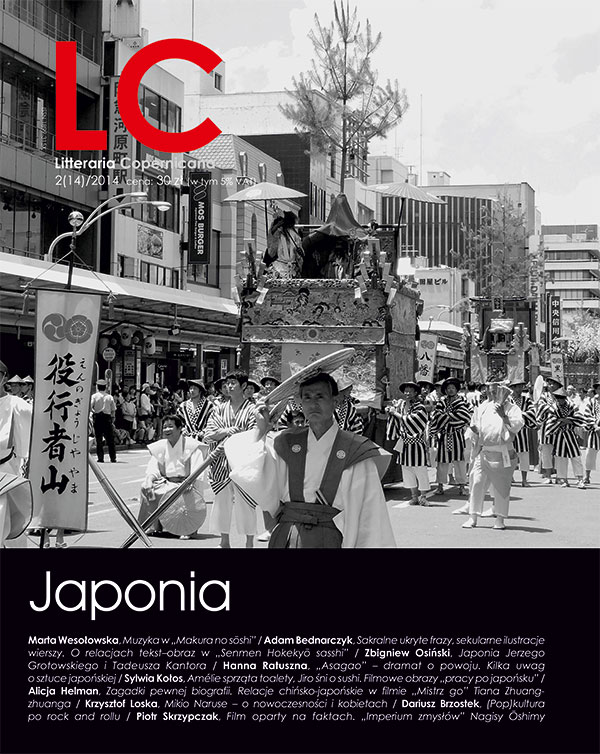Polisemiczne potwory: Kaijū eiga jako nośnik treści społeczno-politycznych. Casus Godzilli
DOI:
https://doi.org/10.12775/LC.2014.034Parole chiave
Godzilla, monster movie, Honda IshirōAbstract
The main goal of the article is to discuss the socio-political aspects of kaijū eiga (literally “monster movie”) genre, especially in the relation to war time and the atomic trauma of Japanese society reflected in the first instalment of the Godzilla series. In the first section of the article I present a brief history of the Western reception of kaijū eiga, from the disregard by the mainstream film criticism to its recognition as an important cultural phenomenon by the academic community. The second section serves as a brief review of the canonical and the unorthodox interpretations of the original Godzilla, which appeared in the literature on the subject during the course of the last three decades. In the next part of the article I discuss Honda Ishirō’s influence on the Godzilla form and significance within the context of his world-view and the traumatic events of his past. The last section of the article is devoted to the changes introduced to the film by its American distributors, which led to the distortion of its original meaning.Downloads
Pubblicato
2014-12-29
Come citare
1.
GŁOWNIA, Dawid. Polisemiczne potwory: Kaijū eiga jako nośnik treści społeczno-politycznych. Casus Godzilli. Litteraria Copernicana. Online. 29 dicembre 2014. Vol. 14, no. 2, pp. 224-243. [Accessed 5 marzo 2026]. DOI 10.12775/LC.2014.034.
Fascicolo
Sezione
Studia i rozprawy
Stats
Number of views and downloads: 814
Number of citations: 0



